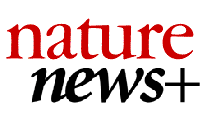

Women's groups celebrate successful campaign
2 July 1999
[BUDAPEST] Women's groups attending the World Conference of Science were opening the champagne late on Wednesday night as news began to leak to them from the committee drafting the final documents to the conference that they had been successful in significantly enhancing all references to the need to improve the position of women in science.
There had earlier been warnings that women and women 's issues might be marginalized at the conference. But after a determined, year-long campaign, and the adoption of the Declaration and Framework for Action yesterday (Thursday), female participants in the conference were unanimous in their enthusiastic approval of the final version of the two documents.
"It is the first time that [the gender issue] has entered the world science agenda," said Sjamsiah Achmad, of the Indonesian Institute of Technology, in Jakarta, who had chaired the conference's 'thematic session' on gender-related issues. "We managed to get whole new paragraph inserted into the framework for action. It is extraordinary, I am very glad we got this understanding."
Achmad says that some "very substantive additions" were made to the original version of the draft declaration by the drafting group that worked during the conference. Her next step will be to form a network for follow-up actions, starting with people she has contacted through the conference.
Wati Hermawati, another member of the Indonesian delegation, says that through her work for the National Focal Point for Gender Science and Technology at the same institute, she will be working on producing gender indicators in science and technology. This will collect statistics and data in areas such as the participation, education, careers of women in science, and the impact of science and technology on women.
"Until now we've had no indicators; many members of the [Organization for Economic Cooperation and Development] have carried out comparative studies [of scientific efforts] but have collected no gender indicators", says Hermawati. She adds that they also intend to extend this exercise into the Asia region at some point in the future.
Amalia Bosia, a molecular biologist from the University of Turin and a member of the Italian delegation, says that the final documents adopted by the meeting appear to have taking into account some of the views expressed to Unesco and ICSU during the preparatory process.
In particular, these included declarations from seven regional fora which had looked at the issue of women in science. "Some of the things that went in [to the documents] may be obvious, but the important thing is that they came from a general opinion, and not a singl," says Bosia, who was involved in a Mediterranean forum in Turin, attended by 350 women.
"We must now enlarge this [process]," says Bosia, who herself intends to focus on education issues, in particular course development. She will be promoting exchanges between women from the South to the North, and vice versa, to enable them to exchange experience. Bosia adds that now "Tte most important thing is to act".
Anni Dugdale, a social scientist from the Australian National University and member of the Australian delegation, is exploring ways of building on the ideas expressed in the final documents in the Asia Pacific region. "The draft declaration makes some strong statements about the need to include women in science at all levels, and for women to use and benefit from science," she says.
Within the Arab region, Unesco has announced it will fund an Arab women's network in science and technology, to be launched by a meeting in Cairo in the near future. Another group is negotiating support for a network based in Jakarta, serving the Indonesian and Pacific region.
The success of the women's lobby at the World Conference did not come overnight, but was the result of a campaign that started more than a year ago, when representatives of the UN Development Fund for Women (UNIFEM) and the Once and Again Future Action Network (OFAN) decided the conference was important.
During the conference itself, these groups formed a Gender, Science and Technology networking group - which they privately refer to as "the caucus". This included eight women brought to Budapest by UNIFEM, and female delegates met through an Internet stand run by OFAN.
The networking group held daily strategy meetings, lobbied nongovernmental organizations, placed representatives in the other thematic meetings, issues statement to the media, analysed lists of delegates for gender bias, and even noted down the number of times that gender was mentioned during the plenary sessions.
"We are delighted, very happy" with the result says Sophia Huyer [Canada] from OFAN. Women's groups won three of six amendments to the draft declaration, and within the longer framework for action document won 12 amendments plus the insertion of a whole new paragraph. They also point out that they made successful changes outside of the gender arena, within areas such as sustainable development, participation of society and indigenous knowledge
Although the declaration is simply words, the delight of the gender pressure group possibly reflects their belief that the agenda has moved forward and that these documents given them worldwide recognition and some leverage for change.
NATASHA LODER